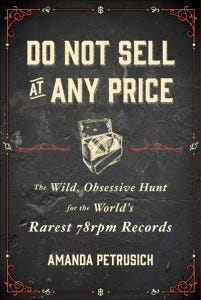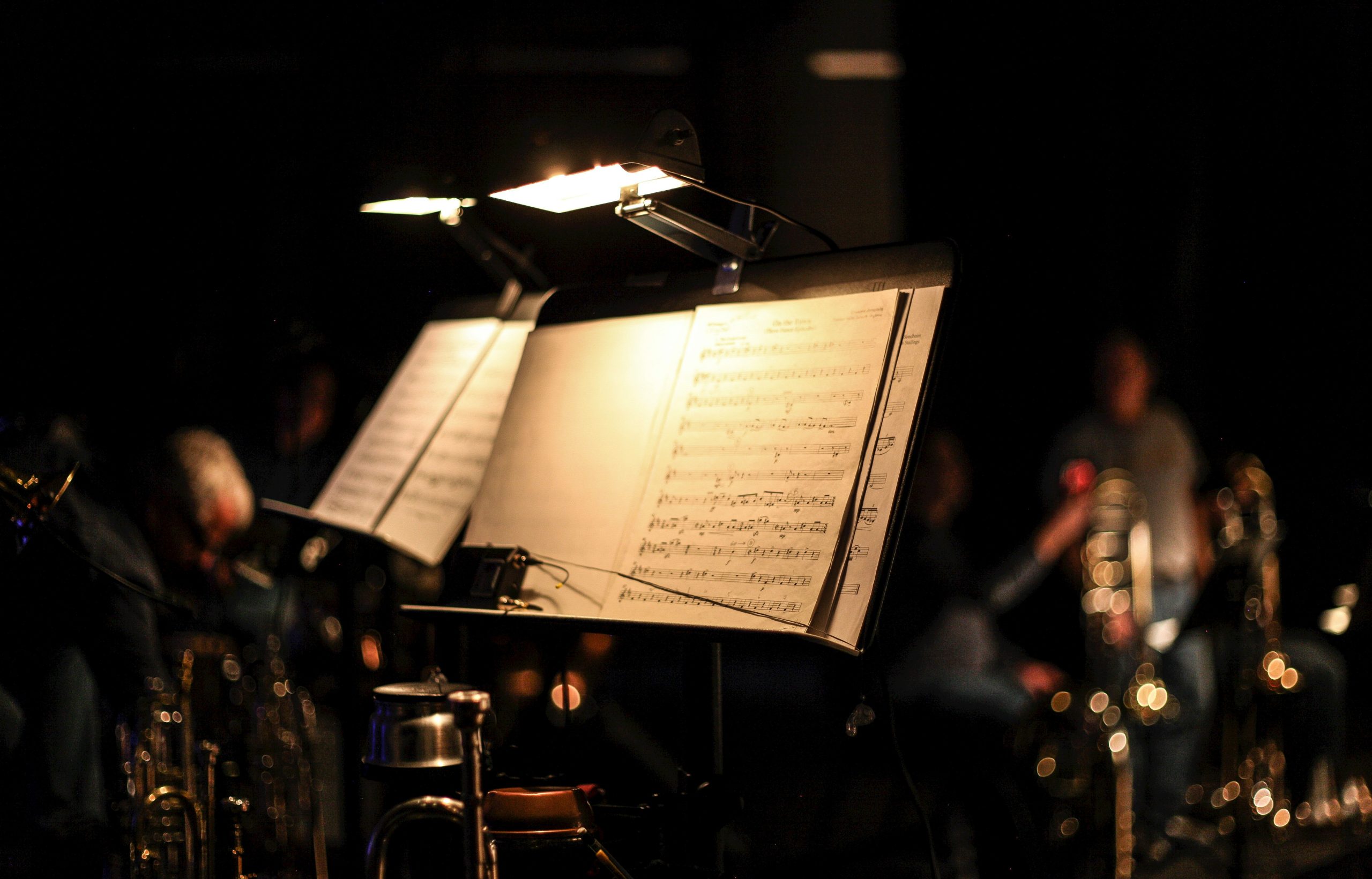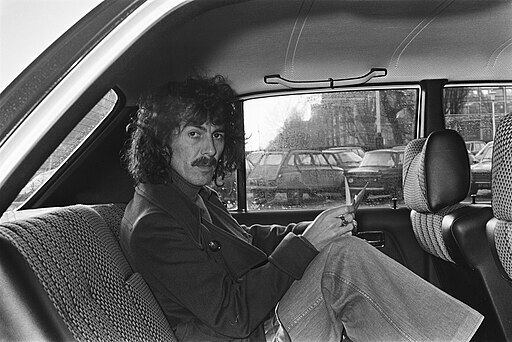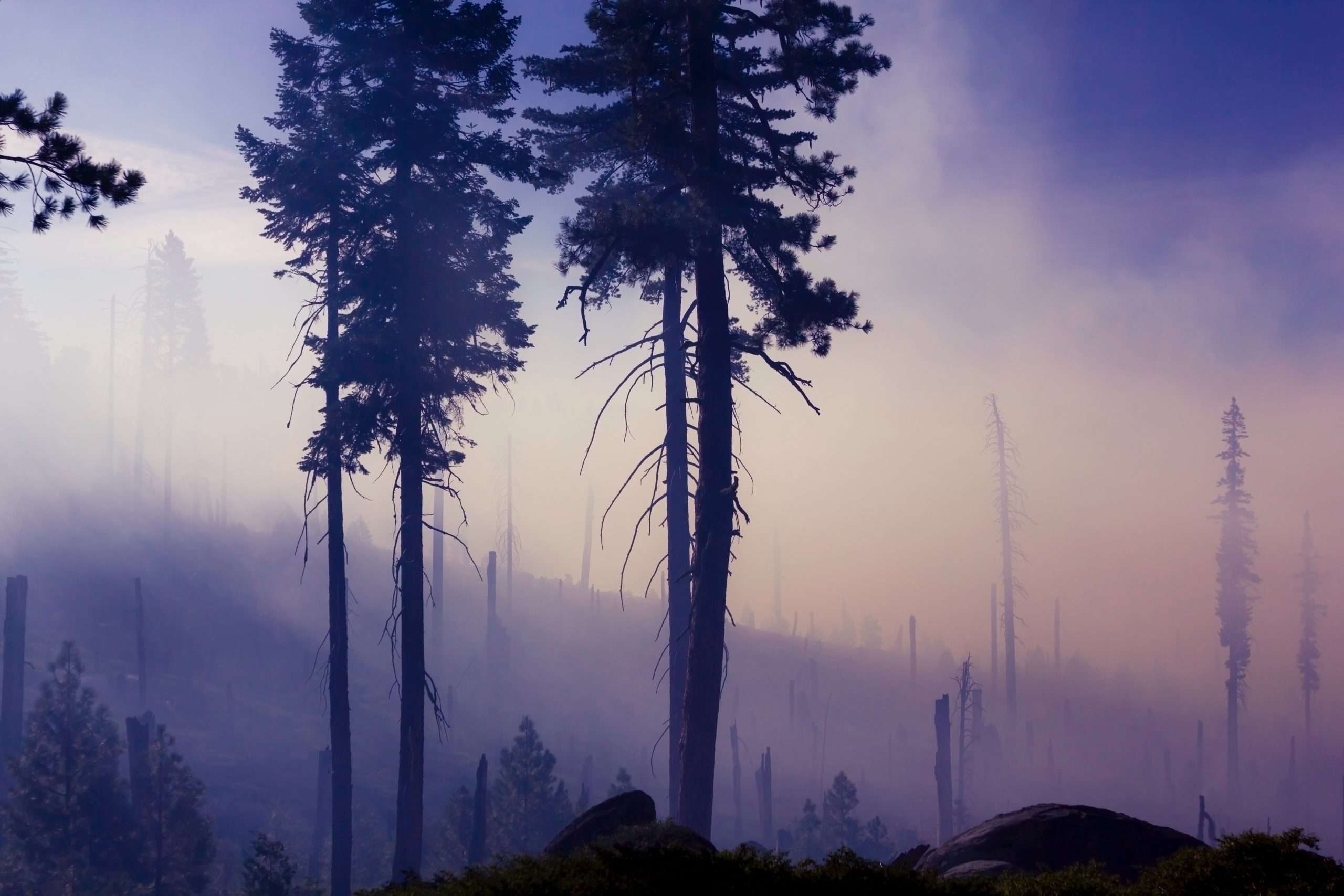interviews
Amanda Petrusich goes record-hunting in Do Not Sell At Any Price


Amanda Petrusich is the author of Do Not Sell At Any Price: The Wild, Obsessive Hunt for the World’s Rarest 78rpm Records, an exploration of the secretive, insular, almost exclusively male world of 78rpm collectors. Petrusich gains entry and forges connections through the sheer force of her own fandom — after years as a critic, she rediscovers her youthful ardor for music, and takes to 78 culture with keen understanding and almost frightening enthusiasm. By the time Petrusich, an anxious, claustrophobic, decidedly non-water-loving Brooklynite, is scuba-diving the Mississippi for the lost “race records” of the Paramount label, the author’s dedication to 78 culture, and the longing for ritual and rarity it represents, is undeniable.
I interviewed Amanda by phone and email (because she’s a fast-talker, and I’m a slow-typer) to talk music writing, emotional listening, and the fetishistic aspects of collecting.
Jessica Roake: You write about the gender generalizations that you’d already had to overcome as a music critic [for Pitchfork, The Oxford American, Spin, and The New York Times, among others] — like the idiotic notion that you’d simply be “incapable of comprehending how guitars work” because of the “constant tears” you experience as a woman listening to music. Did those seem especially precarious in the world of 78s, which is at once so male, but also filled with music that is so explicitly emotional?
Amanda Petrusich: I firmly believe there’s no right way to listen to music. But I fretted a lot that I was doing something wrong — that my way of listening was somehow unsophisticated or naïve. I had to let go of that and grant validity to my own emotional responses to the music, because with so much of this music that’s the point, that’s the best thing these songs can do for us. This music is so emotionally rich — and often so strange and wild sounding — that something felt off, to me, about approaching it exclusively from a scholarly place. I don’t mean to discount scholarship — which is essential, important work, and enriches the listening experience in countless ways — just that I think both approaches are valid and even necessary, and I worried that one was maybe getting overlooked or undervalued.
JR: I really admired how you stuck to your convictions and continued to argue for the importance of the emotional listening experience over the ordering/contextualizing that many of the men in the 78 culture were more engaged with. Do you think that helped you better communicate with them?
AP: I knew I couldn’t outsmart them, but that we could reach some kind of communion as fans of this music. Some of the aggressive contextualizing [they do] is a way of mediating the very intense emotional responses to the music. So yeah, we sometimes connected through my willingness to say, “I don’t know the serial number, but I’m crying.” You know, “This song wants make me wanna die; let’s talk about that,” which is something they might not talk about with each other.
It’s occurred to me in the last couple weeks, talking about this book and a couple long magazines pieces I’ve written this year, that I can be a really emotional reporter! I’ll “why?” something to death, until both myself and my subject are in a fairly raw place. I’m not sure how good or sustainable that is long-term, but I’m supremely interested in all the base human emotions — fear, loneliness, love, lust, ecstasy, whatever — at the heart of nearly everything we do. I am always trying to get closer to that impulse, the ur-impulse, because I think it unlocks everything else. But I’m also a giant fucking goofball. And with this music, especially, there was no critical distance for me. I think I was often able to relate to other collectors as a fan. Fandom can be such a unifying force.
JR: You have a tremendous ability to evoke and articulate these unfamiliar, sometimes literally one-of-a-kind, uncanny pieces of music for the reader — your description, for instance, of Geeshie Wiley’s “Last Kind Words Blues” make both your experience of listening to the song, and the song itself, utterly bewitching. How do you approach writing about a particular piece of music?
AP: It changes depending on what I’m working on, but the thing I don’t do, or at least not at first, is worry too much about contextualizing music in a particular way. I can take an ethnomusicological approach, I can read the music, but my sense is that most people are not looking for that dissection. Most people are trying to get at that mysterious alchemy; what happens when you’re presented with a piece of music that makes you fall apart. I try to have a pure — for lack of a better word — communion with a song, to listen to it exclusively on its own terms. Then I do the uncomfortable, sometimes boring work of dissecting my own personal reaction: what does this song make me feel? For me, the emotional response of those songs is what I’m trying to write through, and it requires a lot of awkward self-analysis. Then it’s about finding the tiny little moments — I’m always looking for little ways to unravel a performance, whether it’s a breath, a slipped rhythm, a particular lyric, a pause. Sometimes one moment can unlock everything else. Then, I do all the other, easier work: learning everything I can about when and where and how a song was made.
JR: Did historical context particularly enrich any records for you?
AP: The record I keep bring up that sort of changed the trajectory of my life is the Geeshie Wiley. She became this cipher; I could project whatever I wanted onto her and onto it. Then, a few months before the book came out, all this information came out about Geeshie Wiley and Elvie Thomas in this great article by John Jeremiah Sullivan — maybe she and Elvie had a relationship, maybe Geeshie Wiley stabbed her husband, the story’s incredible — and having read that story and having read more about her life, yeah, absolutely, I do hear new things when I listen to the song now. But I also appreciate that I had that first opportunity to hear it.
JR: Throughout the book, you make a concerted effort to avoid nostalgia — what’s the danger in nostalgia?
AP: Nostalgia invites a certain kind of blindness. You’re not taking the art on its own terms. There’s a knee-jerk reverence, sometimes, for objects from another era: we’re so charmed and enchanted that they’ve survived at all, and the presumption is that they’re incredible, everything used to be incredible. People fall into that when they talk about music made before 1930, and you know, a lot of that music is garbage. It’s kind of easy to fall into the spooky, mystical thing when the arm drops on an old 78 and you get caught up in the romance in it, because we’re starved for it, and I get it, because I’ve certainly been guilty of it. But I didn’t want to get so romanced by the format that I lost my ability to listen critically. I was worried about falling into the endless font of nostalgia. Ultimately, the art deserves more than that, you know? I didn’t want to default to reverence.
JR: The nostalgia is often coupled with a certain fetishization of rarity — Nathan Salzburg speaks about finding an Earl Johnson record that he doesn’t like as much as other Earl Johnsons in his collection, but that’s much rarer, and thus, much more valuable. He feels uncomfortable with how he unconsciously “treasures” the rare record more — do you think all collectors are conscious of this fetishizing?
AP: Nathan Salzburg is such a thoughtful listener and consumer; he’s also probably fairly anomalous as far as self-awareness goes, at least in this particular crowd. But, you know, rarity is very seductive, in one’s romantic life, in one’s musical life, and I felt that too — the feeling of being privy to something limited is intoxicating. Particularly in this cultural moment, in which everyone has access to everything. I don’t think that’s necessarily an odious impulse, to value something because it’s rare, but it does remove the emotional quotient that became so important to me — it’s a way of distancing yourself from music, which is exactly what I wanted to avoid doing. A lot of the time, the collectors didn’t realize that there was any object fetishization. It takes a lot of work to parse your own response. You know, having the only recorded copy of a song in 2014 does give you some authority, and it feels good.
JR: How much of the 78 culture is about control?
AP: When you own the only known copy of a record in the world, there’s certainly come control in that — you control access to it. You control its story, in a way. Certainly in the canon of pre-war blues music, we’ve accepted a narrative as objective and true that was in fact written by idiosyncratic tastes. This small group of weird, outsider 78 collectors had a more inadvertent influence on the canon in that the records that they liked and hunted down and preserved became, by default, the story of those genres. The more obscure and weird it was in 1929, the more prized it became in 1959. If you ask people [about blues of that era], they talk about Robert Johnson — they don’t say Lonnie Johnson or Barbecue John, who were really popular commercial artists at the time — because this small group of collectors chose the weird guy who made these haunting songs, and that became the story of pre-war blues music. This is especially true with country blues music. The records that collectors liked ended up being the examples that endured. I don’t think I understood the extent of that influence until I started reporting the book.
JR: You write late in the book that you felt “suddenly and fiercely protective of a subculture I had no real claim to.” I really felt you’d staked your claim — why didn’t you?
AP: Longform narrative journalists — even journalists working in the Plimpton-esque, immersion model — always have to reckon with this feeling, I think. You feel a little like you parachuted in and are just standing around awaiting pickup. You get so deep into a story, but eventually — if you want to keep paying your rent — you have to move onto the next story, right? I also felt like such a novice — I hadn’t been collecting for that long, I didn’t have the kinds of records these guys have, I didn’t know as much as they did. 78 collecting is a pastime that values all those things: time, investment, knowledge.
JR: Did the process of writing this change the way you experience and write about music?
AP: I went into this project wanting it to change my listening habits; my listening habits had become pretty grim. I’d been working as a music critic for almost a decade, and I’d become sort of emotionally immune to everything. You know, I’d lost the ability to just let art do its thing on me — to listen without considering the cultural currency of a certain performer, or whatever other contextual detail would end up coloring the experience. In a way, it allowed me to regress as a listener. Now, I’m more likely to hear things the way I did when I was a teenager and everything was new.









